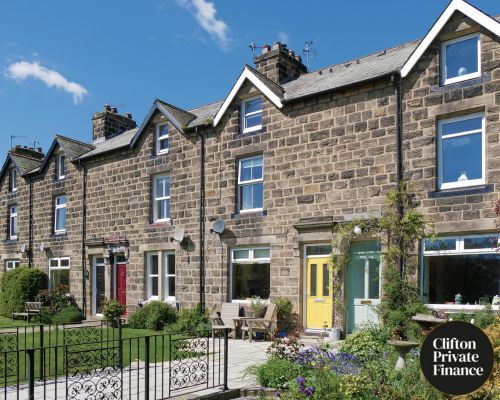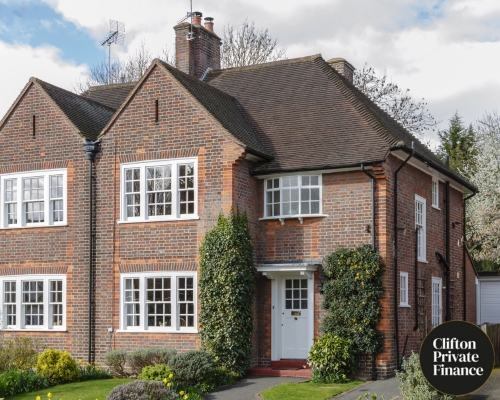Categories
How To Secure An Interest Only Mortgage In Retirement

The world – and certainly the UK - has changed in recent years: elderly property owners are increasingly releasing equity from their homes in order to help their student and twentysomething grandchildren put down deposits on property (while the cost of property itself just keeps climbing).
At the same time, many couples aren’t getting married until much later these days – often into their 30s – which means they aren’t actually buying their first home until much later in life than previously.
Then there is the fact that the working retirement age has risen to 67 for men and 65 for women and anyway, many of us are choosing to work freelance from home pretty much well into our sixties, seventies and even eighties and, in doing so, continue to bring in a decent income – one which would easily cover a mortgage repayment.
In fact, such is the demand for older age lending that this phenomenon has a special name in finance circles. It’s known as ‘later life borrowing,’ while the official term being used by finance institutions is ‘retirement mortgage.’
The trend-that-is-here-to-stay has meant that the traditional High Street banks and lending institutions have had to rethink the type of mortgage products they are currently offering the market in order to become more relevant – and competitive, of course. Instead of an aged 75 cut-off point, for instance, some mortgage products are being extended to 99 years of age.
It all makes perfect sense considering that around seven in ten interest-only and part capital repayment mortgages are held by customers aged over 45, according to a recent survey by the Financial Conduct Authority (FCA).
A lifeline for those with interest-only mortgage debt
For the consumer, that’s definitely good news...especially for thousands of homeowners who have interest-only mortgages that they couldn’t possibly pay off at the end of their term. In the past these homeowners had to hope they had enough equity in order to downsize. And, in fact, it was exactly this predicament that prompted the FCA to relax its rules. After all, it affected a huge 17.6 per cent of all outstanding mortgage accounts in the UK while individuals aged 65 and over account for one in nine of all interest-only mortgage holders.
Previously it wasn’t possible for interest-only mortgage holders to use the sale of their house on their death or to move into a care home and sell their property as a way of paying off their interest-only mortgage – but that’s all changed now thanks to a relaxing of rules by the FCA within the past couple of months.
But, like most declarations of good news there can be a potential downside too.
In this article we’ll highlight the pros and cons of ‘later life borrowing’ as well as look at what it means for those of retirement age looking to remortgage and free up equity.
What is the age limit for getting a mortgage?
Research retirement mortgages and you may be pleasantly surprised.
Sign up with the Aldermore bank, for instance, and you’ll find you can take out a mortgage until you’re 99 years of age (yes, really). And the interest rate is a not-ridiculous 3.38%. Not only that, but you can take out a retirement mortgage with the bank up until you’re 85 years old. What it means in practical terms is that if you’re 55 years of age you could get a mortgage for 44 years and at 85-years-old the bank could sign off a home loan lasting 14 years.
Family Building Society is also getting in to the retirement mortgage fold. It has increased its maximum age for a mortgage term to 95 years of old. So, if you’re currently 90 years of age you can borrow for five years.
The Post Office will lend to 90-year-olds too (although only for a repayment mortgage). They will lend up to age 80 for interest-only - provided that person doesn’t already have a mortgage on another property.
Loughborough Building Society now has no age limit at all on its mortgage products. Neither have Bath, Cambridge, Harpenden, Ipswich, Leek United, Marsden and Saffron building societies.
What are the challenges in getting a retirement mortgage?
Naturally there are ‘challenges’ or downsides to acquiring some of these mortgages when you are what society regards as being of an ‘elderly’ age.
The first one that springs instantly to mind is ‘health’ – in the sense that if the mortgage is taken out in a couple’s name then there could be problems regarding the joint pension income if one of the couple dies and the single person can no longer afford those relatively high mortgage payments.
Income situtation in retirement - Even if you happen to be still working and bringing home a great salary when you apply for a mortgage it can prove difficult accessing one. That’s because the lender may be doubtful that you’ll be able to afford the repayments on a retirement income.
It can be difficult proving you will be able to since you won’t have confirmation of what your pension income works out as until you do actually retire. In which case, you would have to supply the would-be lender with details such as the date when you expect to retire, what your current pension pot is valued at, and what you expect to get every month when you retire. Even then you are still a bit of a risk to the lender.
It’s not that financial institutions are being unnecessarily biased towards elderly mortgage applicants, merely that they have to abide by Mortgage Market Review (MMR) legislation which dictates that they have to be able to ensure that the mortgage payments will be kept up-to-date during the term of the mortgage.
Future intentions - Another difficulty lenders are no doubt aware of is that what if, in the future, the individual who took out the mortgage changes his or her mind and decides not to sell their home when the mortgage term comes to an end? That’s when things can get rather complicated for all concerned...
Can I get an interest only mortgage in retirement?
Interest-only mortgages for older consumers are available and need only be paid off when, for instance, the person dies or he/she moves into residential care.
In this sense then it’s actually another form of equity release (although a far less expensive version in the long term and one that means you will still have security ‘equity’ in your property).
Many of the ‘older age borrowing’ deals mentioned above offer an interest only mortgage to retirees.
But there are stipulations... In order to qualify, for instance, you typically must have at least 40 per cent equity in your current property as a form of back-up to the lender.
How do you apply for an interest only mortgage?
Different lenders will have different application processes.
For an Aldermore interest only mortgage you’ll have to use one of a number of specially chosen mortgage brokers approved by the bank.
For retirement mortgage products being offered by other banks and finance institutions it’s best to speak to an independent mortgage broker; preferably one who specialises in acquiring mortgages for older individuals.
There are specific equity release mortgages already on the market but these tend to have a higher interest rate than the new breed of retirement mortgages which are emerging.
Get independent advice
For up-to-the-minute advice on finding the right retirement mortgage product for you or for any other financial loan matter you may be considering then do get in touch for a no-obligation chat today with and independent adviser. We look forward to hearing from you.











